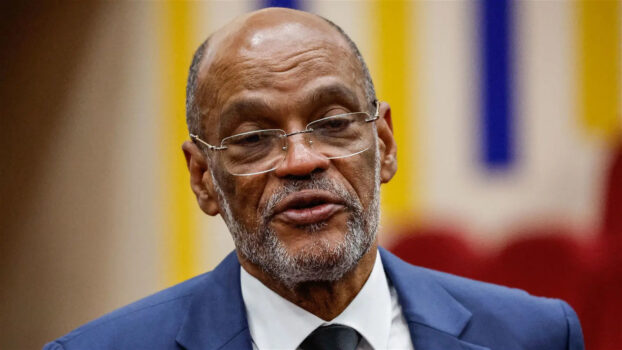 The situation in Haiti has become increasingly volatile as criminal gangs have tightened their grip on the capital, Port-au-Prince, controlling up to 90% of the city. Amidst this turmoil, Prime Minister Ariel Henry has resigned, marking a significant development in Haiti’s turbulent political landscape. This move comes after a gathering of Caribbean nations, UN representatives, and delegates from countries like France and the United States in Jamaica, aimed at finding solutions to Haiti’s pressing challenges.
The situation in Haiti has become increasingly volatile as criminal gangs have tightened their grip on the capital, Port-au-Prince, controlling up to 90% of the city. Amidst this turmoil, Prime Minister Ariel Henry has resigned, marking a significant development in Haiti’s turbulent political landscape. This move comes after a gathering of Caribbean nations, UN representatives, and delegates from countries like France and the United States in Jamaica, aimed at finding solutions to Haiti’s pressing challenges.
However, Henry found himself stranded in Puerto Rico, unable to return to Port-au-Prince due to the volatile situation. He engaged with Caricom members remotely from there. Haiti’s political scene has been plagued by instability since the assassination of President Jovenel Moïse in 2021, with no subsequent elections held since 2016. Henry, appointed by Moïse, was originally scheduled to step down in early February, further exacerbating the leadership vacuum.
Despite efforts to address the crisis, including Henry’s agreement in Nairobi to deploy Kenyan police officers to Haiti, the situation remains perilous. Diplomatic discussions in Kingston sought to formalize a proposal urging Henry to transfer power to a transitional council representing Haitian civil society. Prior to his resignation, Henry affirmed the government’s commitment to establishing a transitional presidential council, highlighting plans for members to be selected in consultation with various sectors of Haitian society.

White House Says Military Option Open On Greenland Acquisition
Trump Calls Case Against Maduro “Infallible” Ahead Of U.S. Court Appearance
South Africa Raids U.S. Refugee Processing Centre, Arrests Seven Kenyans
Time Magazine Names AI Visionaries ‘Person of the Year’